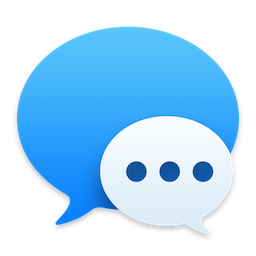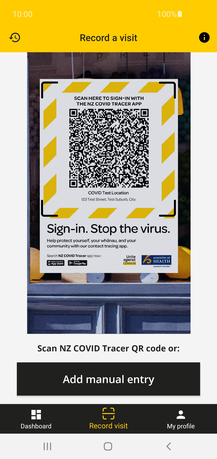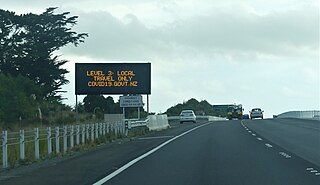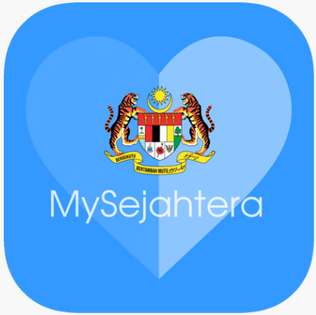Related Research Articles

A QR code is a type of two-dimensional matrix barcode, invented in 1994, by Japanese company Denso Wave for labelling automobile parts. A QR code consists of black squares arranged in a square grid on a white background, including some fiducial markers, which can be read by an imaging device, such as a camera, and processed using Reed–Solomon error correction until the image can be appropriately interpreted. The required data are then extracted from patterns that are present in both the horizontal and the vertical components of the QR image.

iMessage is an instant messaging service developed by Apple Inc. and launched in 2011. iMessage functions exclusively on Apple platforms: macOS, iOS, iPadOS, and watchOS, a form of vendor lock-in.

Google Pay is a mobile payment service developed by Google to power in-app, online, and in-person contactless purchases on mobile devices, enabling users to make payments with Android phones, tablets, or watches. Users can authenticate via a PIN, passcode, or biometrics such as 3D face scanning or fingerprint recognition.

COVID-19 apps include mobile-software applications for digital contact-tracing - i.e. the process of identifying persons ("contacts") who may have been in contact with an infected individual - deployed during the COVID-19 pandemic.

The (Google/Apple) Exposure Notification (GAEN) system, originally known as the Privacy-Preserving Contact Tracing Project, is a framework and protocol specification developed by Apple Inc. and Google to facilitate digital contact tracing during the COVID-19 pandemic. When used by health authorities, it augments more traditional contact tracing techniques by automatically logging close approaches among notification system users using Android or iOS smartphones. Exposure Notification is a decentralized reporting protocol built on a combination of Bluetooth Low Energy technology and privacy-preserving cryptography. It is an opt-in feature within COVID-19 apps developed and published by authorized health authorities. Unveiled on April 10, 2020, it was made available on iOS on May 20, 2020 as part of the iOS 13.5 update and on December 14, 2020 as part of the iOS 12.5 update for older iPhones. On Android, it was added to devices via a Google Play Services update, supporting all versions since Android Marshmallow.

NZ COVID Tracer is a mobile software application that enables a person to record places they have visited, in order to facilitate tracing who may have been in contact with a person infected with the COVID-19 virus. The app allows users to scan official QR codes at the premises of businesses and other organisations they visit, to create a digital diary. It was launched by New Zealand's Ministry of Health on 20 May 2020, during the ongoing COVID-19 pandemic. It can be downloaded from the App Store and Google Play.

Corona-Warn-App is the official and open-source COVID-19 contact tracing app used for digital contact tracing in Germany made by SAP and Deutsche Telekom subsidiary T-Systems.

The New Zealand Government responded to the COVID-19 pandemic in New Zealand in various ways. In early February 2020, the Government imposed travel restrictions on China in response to the global COVID-19 pandemic originating in Wuhan and also repatriated citizens and residents from Wuhan. Following the country's first case which originated in Iran, the Government imposed travel restrictions on Iran.

Valtrace is a contact tracing platform used in Valenzuela, Metro Manila. Its current role is to replace paper forms that increases possible contact with the virus. Valtrace uses QR code technology to provide contact-less tracing within the city. People who are going into the city's establishments should register to the program, in order to enter the establishment.

COVID-19 vaccination in New Zealand began on 20 February 2021, and will continue throughout the pandemic with the goal of vaccinating all willing New Zealanders aged 5 or older. Those aged 5 to 11 require a parent, caregiver or legal guardian accompany them to their appointment and provide consent for them to be vaccinated. As of 1 September, anyone in New Zealand, regardless of their immigration status, is eligible to be vaccinated.
LeaveHomeSafe is a digital contact tracing app launched by the Hong Kong Government on 16 November 2020 to conduct contact tracing in Hong Kong. It can be used as a companion of the Hong Kong Health Code system for registered users.
SafeEntry was a national check-in system which enables the logging of visitors at various locations during the COVID-19 pandemic in Singapore, allowing health authorities to track and isolate confirmed clusters. It was used in tandem with TraceTogether, the national contact tracing platform in Singapore. The system was deactivated on 9 February 2023 after authorities determined there was no longer a need for the system.

MySejahtera is a mobile application developed by Entomo Malaysia and the Government of Malaysia to manage the COVID-19 outbreak in Malaysia. It can be used to conduct contact tracing, self-quarantine, and also book COVID-19 vaccination appointments.

A COVID-19 vaccine card is a record often given to those who have received a COVID-19 vaccine showing information such as the date(s) one has received the shot(s) and the brand of vaccine one has received, sometimes including the lot number. The card also contains information identifying the recipient and the location where the shot was given. Depending on the country, it could serve as an official document verifying one has received vaccination, which could be required by some institutions, such as a school or workplace, when boarding a cruise ship, or when crossing an international border, as proof that one has been vaccinated.

The EU Digital COVID Certificate (EUDCC), known in Italy as the Green Pass, and in France as the Sanitary Pass or Health Pass, is a digital certificate that a person has been vaccinated against COVID-19, tested for infection with SARS-CoV-2, or recovered from COVID-19 created by the European Union (EU) and valid in all member states.

A vaccine passport or proof of vaccination is an immunity passport employed as a credential in countries and jurisdictions as part of efforts to control the COVID-19 pandemic via vaccination. A vaccine passport is typically issued by a government or health authority, and usually consists of a digital or printed record. Some credentials may include a scannable QR code, which can also be provisioned via mobile app. It may or may not use a COVID-19 vaccine card as a basis of authentication.
The COVID-19 Protection Framework was a system used by the New Zealand Government during the COVID-19 pandemic in New Zealand. The three-tier traffic light system used vaccination and community transmission rates to determine the level of restrictions needed. It came into effect at 11:59 pm on 2 December 2021, replacing the four-tier alert level system, which used lockdowns. On 12 September 2022, Prime Minister Jacinda Ardern announced that the traffic light system would be dropped at 11:59 pm that night.
My Vaccine Pass is a vaccine certificate issued by the New Zealand Government that serves as an official record of one's COVID-19 vaccination status. The vaccine pass is required to enter hospitality venues, community, sport and faith-based gatherings, as a result of the COVID-19 Protection Framework having come into effect on 3 December 2021.
Google Wallet is a digital wallet platform developed by Google. It is available for the Android, Wear OS, and Fitbit OS operating systems, and was announced on May 11, 2022, at the 2022 Google I/O keynote. It began rolling out on Android smartphones on July 18.

Samsung Wallet is a digital wallet platform developed by Samsung. It is available for the Samsung Galaxy-exclusive One UI Android operating system, and was announced on February 9, 2022, at the February 2022 Samsung Unpacked event. It combines both Samsung Pay and Samsung Pass.
References
- 1 2 "NZ Pass Verifier". Ministry of Health. 3 December 2021. Archived from the original on 2 December 2021. Retrieved 3 December 2021.
- 1 2 3 "Covid Pass verifier app now available for businesses". Radio New Zealand . 23 November 2021. Archived from the original on 23 November 2021. Retrieved 3 December 2021.
- ↑ "Technical information published to support COVID-19 Vaccine Pass and verifiers". New Zealand Doctor . 5 November 2021. Archived from the original on 8 November 2021. Retrieved 25 December 2021.
- ↑ "New Zealand Covid Pass Specification". nzcp.covid19.health.nz.
- 1 2 Chen, Andrew (3 December 2021). "COVID 19 Delta outbreak: Vaccine pass verification essential to prevent fraud, virus spread". The New Zealand Herald . Archived from the original on 3 December 2021. Retrieved 25 December 2021.
- ↑ "Ministry of Health confirms vaccine pass verifiers not compulsory". 1 News . 24 November 2021. Archived from the original on 25 November 2021. Retrieved 16 December 2021.
- ↑ "New system lights up". Wairarapa Times-Age . 1 December 2021. Archived from the original on 1 December 2021. Retrieved 25 December 2021.